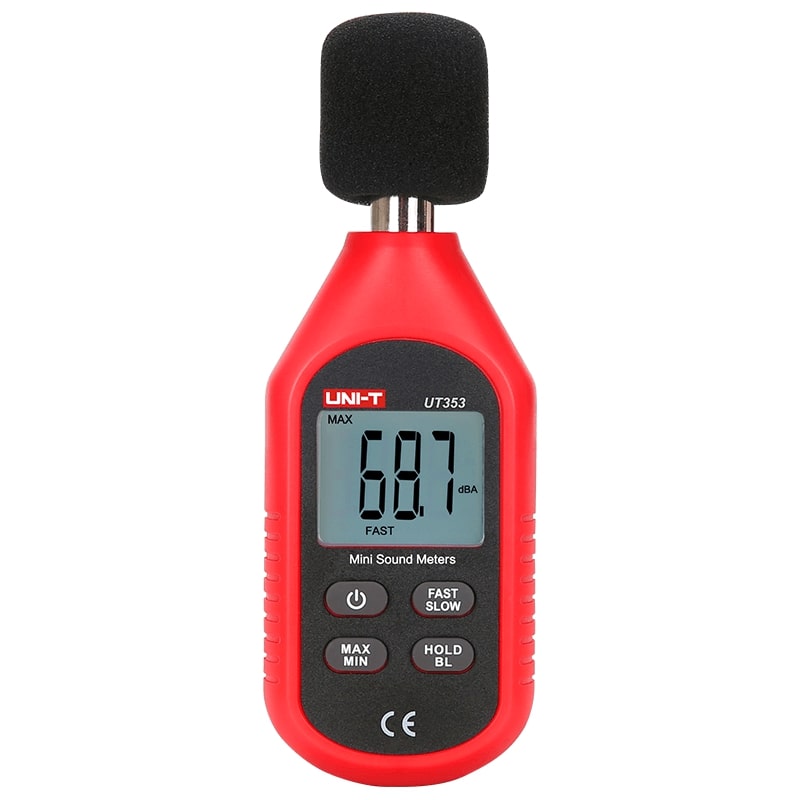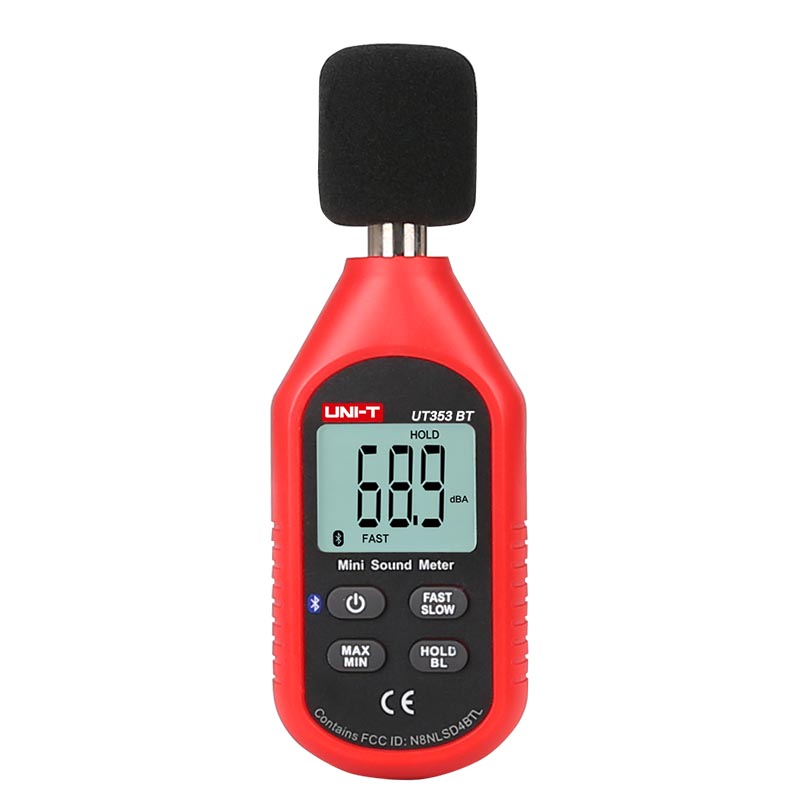Sound Level Meters
Sound level meters: Precise measurement of noise and sound
Sound level meters are indispensable tools for accurately determining the noise level in your environment. They are used to monitor and analyze noise to ensure that legal limits are met and a pleasant acoustic environment is created. Whether in industry, construction, healthcare or the private sector: sound level meters make a valuable contribution to noise protection and to ensuring comfort and safety.
Application areas of sound level meters
Sound level meters are used in a wide range of applications. In industry, they are used to monitor compliance with noise protection guidelines and ensure occupational safety. In the construction industry, these devices are used to measure construction site noise to protect residents and workers. In healthcare, they play a role in the diagnosis of hearing loss and the evaluation of hearing aids.
Sound level meters are also useful in the social sphere. They help to control noise pollution in residential areas or at events. They are also used in research and development to analyze and reduce noise emissions from products.
Important functions and features of sound level meters
A good sound level meter is characterized by various important functions. These include high measurement accuracy and fast response times to ensure precise and reliable results. Many models offer a wide range of adjustable frequency and time weightings to fulfill different measurement tasks.
Modern sound level meters often have additional functions such as data storage and transmission to enable easy evaluation and documentation of the measurement results. A clear display and intuitive operation are also key features that facilitate the practical use of the devices.
Calibration and maintenance
Regular calibration of sound level meters is crucial to ensure measurement accuracy over a longer period of time. Many manufacturers offer special calibration services for this purpose, and there are also external calibration service providers. Some devices are equipped with internal calibration tools that make it quick and easy to check the functionality of the device.
In addition to calibration, maintenance also plays an important role. Dust and dirt can affect the sensors and reduce the accuracy of the measurement results. Regular cleaning and proper storage help to maintain the service life and reliability of the sound level meter.
Choosing the right sound level meter
You should consider several factors when selecting a sound level meter. The requirements and areas of application will largely determine which features and functions the device should have. Consider whether you need a device for professional use or for private purposes. Professional devices often offer greater precision and additional functions, while simpler models may be perfectly adequate for everyday use.
Compare different models in terms of their measuring accuracy, ease of use, additional functions and price-performance ratio. Read test reports and use testimonials from other users to make an informed decision.
Advantages and disadvantages of different models
Different models of sound level meters each offer their own advantages and disadvantages. High-priced, professional devices often offer very high accuracy and numerous additional functions, but are correspondingly more expensive and may be oversized for occasional use. Simpler models are usually cheaper and easy to use, but may not offer the same precision or range of functions.
Think about whether you prefer a portable handheld device or a permanently installed system. Handheld devices offer mobility and flexibility, but are often designed for shorter periods of use. Fixed systems can carry out continuous long-term measurements and are particularly suitable for use in industrial operations or public facilities.
Accessories and extensions
Many sound level meters can be supplemented with accessories and extensions. These include external microphones, which increase measurement accuracy, or special software, which enables detailed evaluation and analysis of the measurement results. Protective covers and transport cases are also important accessories to protect the device and ensure its longevity.
Another useful addition are calibrators, which allow you to check and adjust the accuracy of your sound level meter yourself at any time. This is particularly useful if the device is used frequently or in harsh environments.
Summary
Sound level meters are important tools for the precise measurement of sound and noise in various areas. They help to control noise pollution and ensure compliance with noise protection guidelines. When selecting a suitable device, you should consider the specific requirements and areas of application. Also consider regular calibration and maintenance to ensure the accuracy and reliability of the device. With the right model and accessories, you can carry out effective noise analysis and control.


